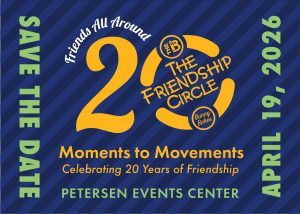
Image courtesy of Chabad.org
A WEEKLY TORAH THOUGHT BY RABBI MORDY
This week we begin the fourth Book of the Torah, the Book of Numbers, also called Bamidbar. Bamidbar is the name of the Parsha as well and, while the book overall is called Numbers, the word Bamidbar is actually translated to mean “in the desert.” It speaks of Moses counting the Jewish people (Numbers, get it?) and begins by describing the setting – it happened, obviously, in the desert. This also works for the time of year in which we find ourselves, since the holiday of Shavuot is fast approaching (Sunday night through Tuesday, a great time to go to shul and hear the Ten Commandments!). Shavuot commemorates the giving of the Torah which happened in, wait for it, the desert! So there is obvious significance to the desert and lessons to be learned. One that is appropriate as we celebrate the giving of the Torah is the desert as an ownerless wilderness. Why? Why was the Torah to be given, yes on a mountain, but in a vast desert? The answer is for that reason exactly. The Torah was not to be given in a certain specific locale which would give reason for its inhabitants to feel the “rights” to it. It wasn’t given in a city to be ideal for “city folk,” nor in the country for “country folk.” It was in the desert where no one really dwells but people simply pass through. What is the lesson? The Torah is an everlasting guide book. The Torah is meant to guide and direct us through life regardless of where we may be at that given moment; there is always something relatable for anyone and everyone. We, regardless of where we find ourselves, don’t have a right to tell others how it doesn’t relate to them. The Torah was given in a desert, and therefore belongs to each of us equally. To learn it, live it, love it—and even debate it. So, as we prepare for the giving of the Torah, let us try and take a lesson from G-d’s guidebook and see how it may relate to us. The Torah is called “Torat Chaim,” the Book of Life; it is a living document and has lessons for each of us at any given moment. Let’s seek those lessons so we may live more meaningful, more goodly and more G-dly lives. Good Shabbos!






